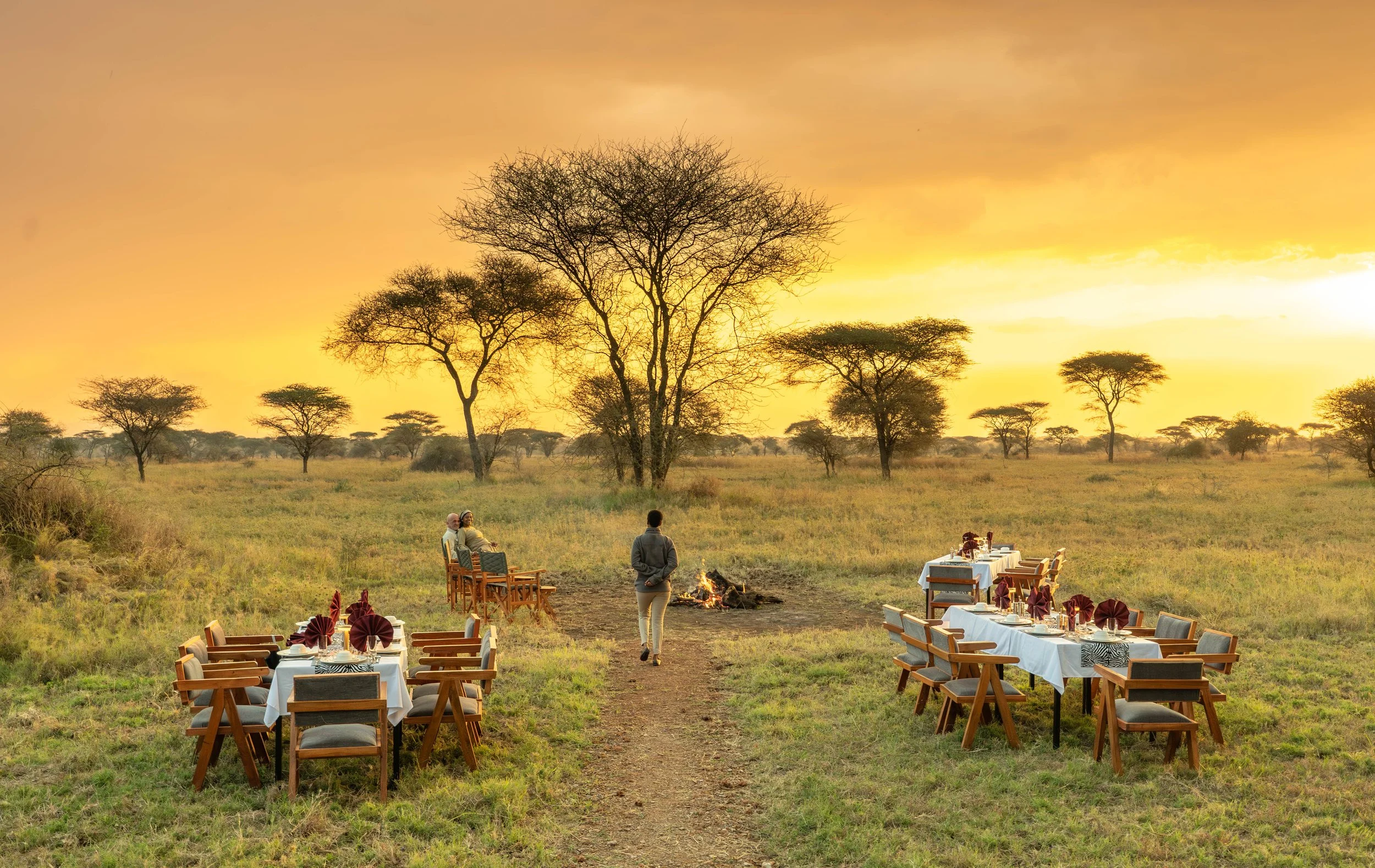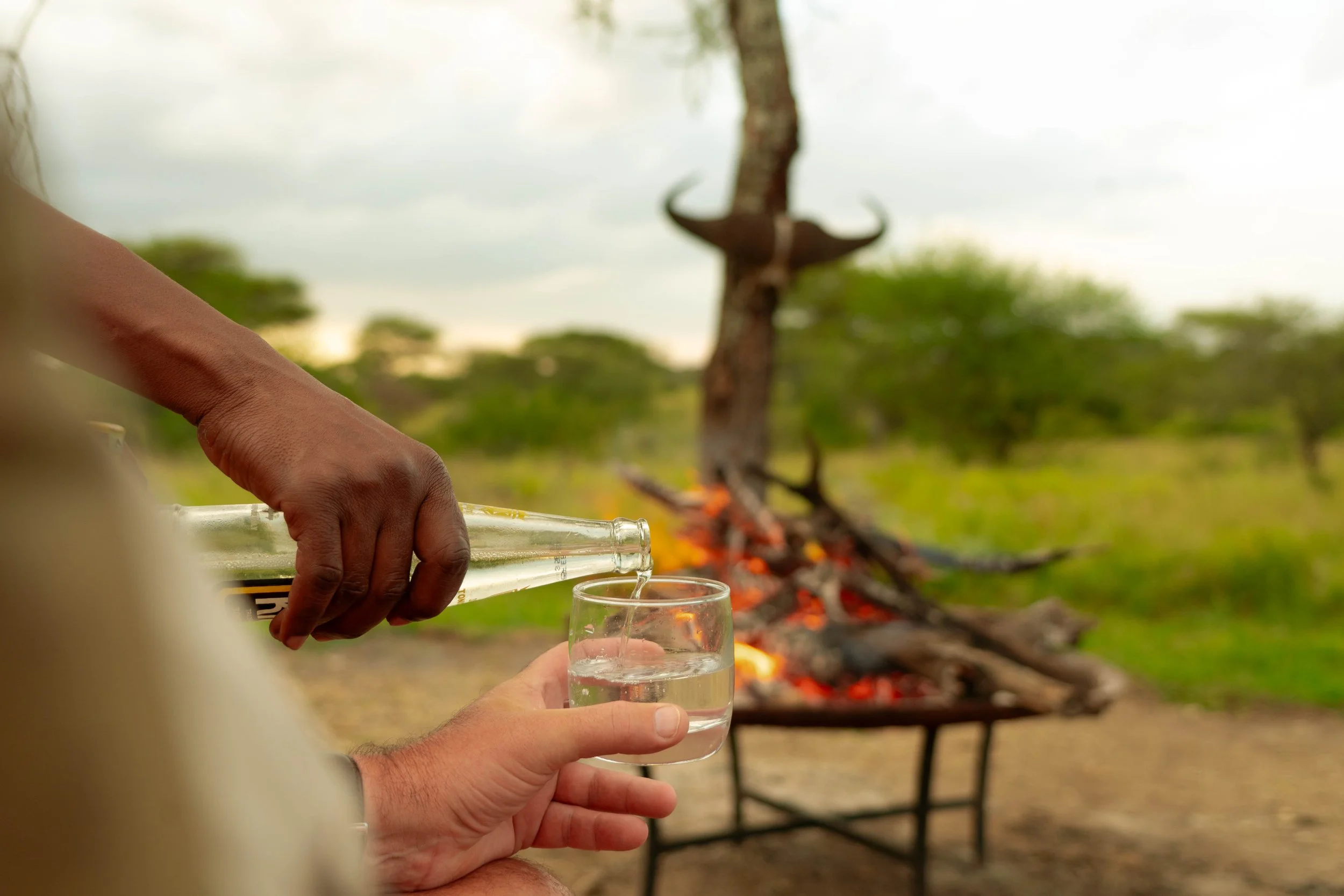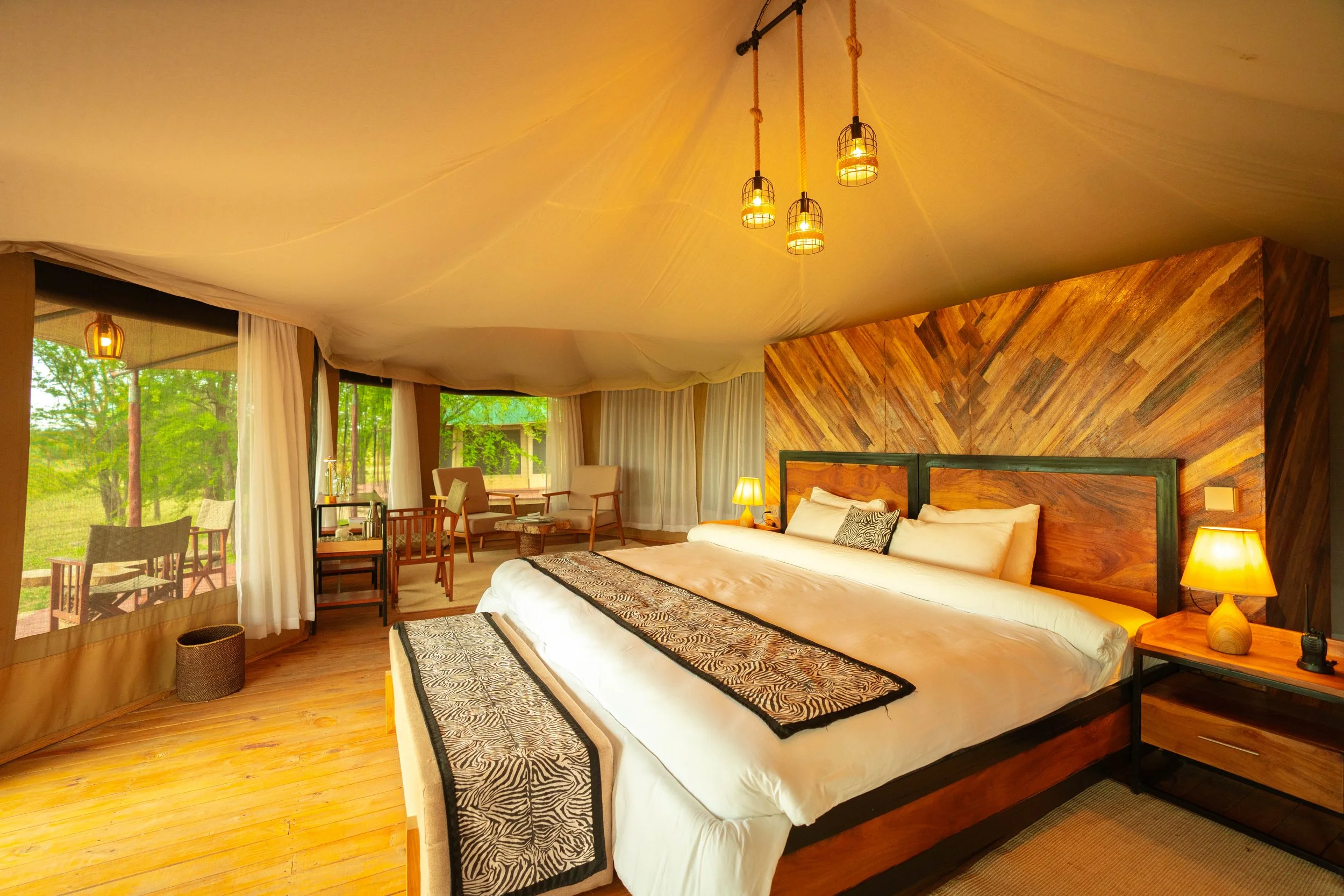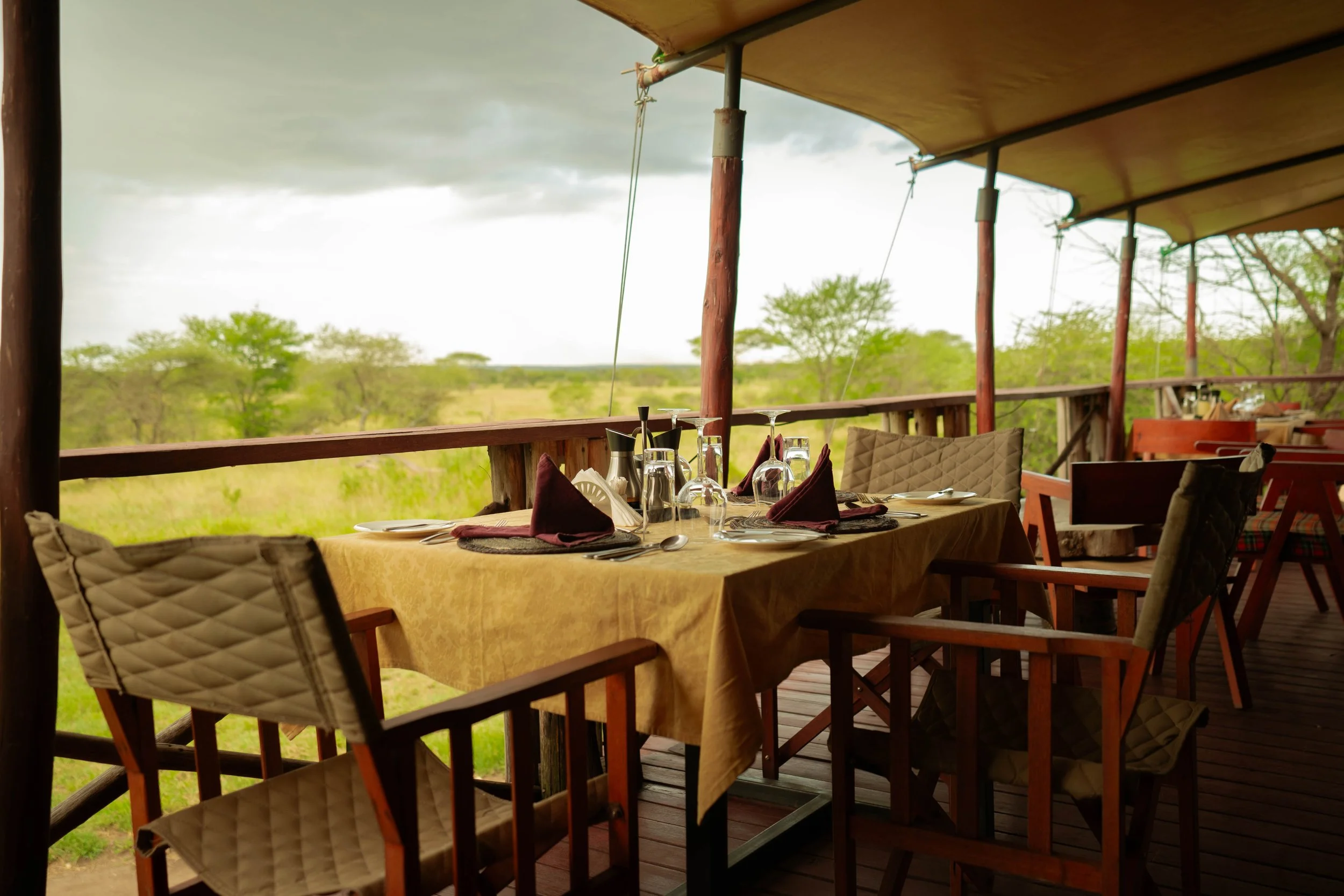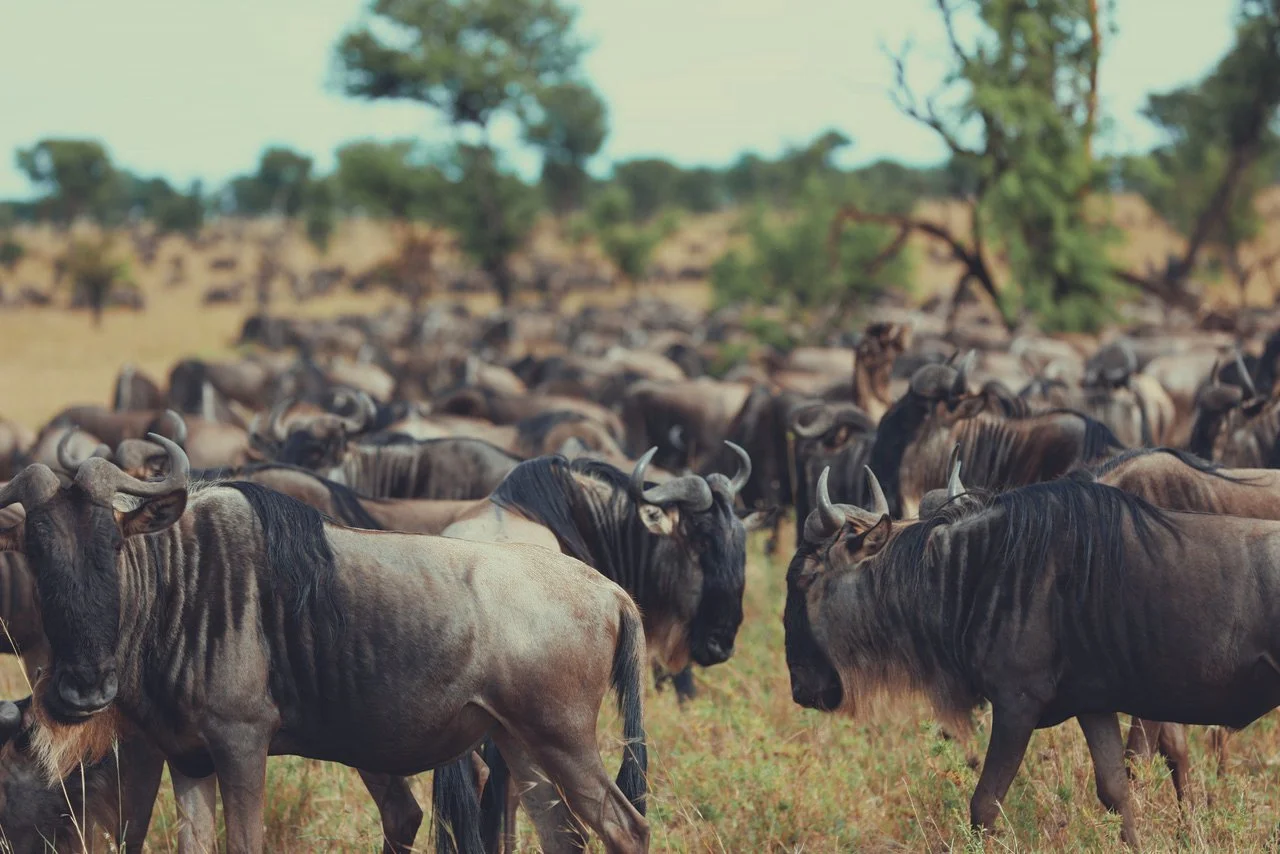
2 Days Safari - Central Serengeti
3 Days / 2 Nights, Seronera
Note: This is a suggested Safari package. All our Safari packages are customizable.
Introduction
Start : Day 1
Accommodation : Moyo Tented Camp
Destination : Seronera
Basis : FB
Duration : 2 Nights
Key
B&B : Bed and Breakfast FB : Full Board - Dinner, Bed, Breakfast and Lunch
-
Full board accommodation while on safari
Transfers as per the itinerary
All game viewing in a custom-built 4 x 4 Land Cruiser safari vehicle driven by a professional English-speaking driver guide
Excursions as per the itinerary
Park Entrance fees throughout
1 litre of water per person per day while in our safari vehicle
Current Government taxes and levies
-
International Airfares
International and domestic departure tax
Laundry services
All alcoholic & Non-alcoholic drinks
Flight Arusha - Serengeti - Arusha, luggage allowance 15kgs per person.
Meals and excursions not described in the itinerary above
Entry Visas to the country
Travel and health insurance
Balloon flight in the Serengeti (additional charge USD550 per person)
Any optional tours or excursions not mentioned in the itinerary above
Gratuities (tips) to your guide, hotel staff and porters
Any other items of a personal nature, such as drinks, laundry, telephone and postage.
Day 1 • Moyo Tented Camp, Seronera
Day Itinerary
On arrival at Seronera Airstrip (flight not included), you will be met by your Moyo Tented Camp driver-guide. After a warm welcome, you will receive your lunch boxes and proceed directly on a game drive in Serengeti National Park.
As the afternoon comes to a close, you will drive to Moyo Tented Camp, located in the central Serengeti. Upon arrival, our team will assist you with check-in to your tent, followed by dinner and an overnight stay at the camp.
The Seronera region, in the central Serengeti, is set directly on the Great Migration route and offers excellent viewing of this incredible annual phenomenon, when countless wildebeest flood the area and move across the plains. While migratory game populations fluctuate seasonally, Seronera is still a wildlife hotspot at other times of the year, sheltering the Big Five, among many other species. A number of small campsites provide accommodation and visitors can enjoy hot air balloon trips and walking safaris as well as guided game drives.
Overnight : Moyo Tented Camp
Moyo Tented Camp is located in Tanzania's Seronera Valley, just 20 kilometers from the Serengeti Seronera Airstrip. The camp provides spacious tents with private bathrooms, complimentary toiletries, and private verandas with safari chairs. Guests can enjoy delicious meals at the on-site dining tent and lounge. Other amenities include free Wi-Fi, a laundry service, and 24-hour electricity.
Basis
Full Board - Dinner, Bed, Breakfast and Lunch
Day 2 • Moyo Tented Camp, Seronera
Day Itinerary
As the sun rises on your fourth day in the Serengeti, make the most of the game viewing. Order a picnic breakfast or lunch head out into the bush, and spend the day looking for the game while enjoying the magic that this park has to offer. Later, back at camp, dinner is served, and evening drinks by the campfire are the perfect way to discuss the day’s events.
Activities : Central Serengeti
Situated in the heart of Tanzania, the Central Serengeti encompasses the world-famous Seronera Valley which is known for its prime wildlife-viewing opportunities. While game drives are the highlight of any Serengeti safari, they are just the beginning of what your adventure can include. Several activities can be added to your itinerary such as guided walking safaris, hot air balloon rides over the plains, cultural encounters with local communities, or private bush dining beneath the acacia trees. Each adds a new perspective, creating a safari experience that is as diverse and memorable as the Serengeti itself.
Basis
Full Board - Dinner, Bed, Breakfast and Lunch
Day 3 • End of Itinerary
Day Itinerary
After breakfast, check out and transfer to Seronera airstrip for your scheduled flight back to Arusha and Kilimanjaro International airport (Flight not included)—end of Moyo Tented Camp Service.
Basis
Bed&Breakfast
Travel Information
Tanzania
The name Tanzania conjures up images of wildebeest stampeding across vast savannah, rain forests teeming with monkeys and birdlife, and great plains brimming with legions of game. All of these natural wonders and more are on offer in this exceptionally diverse African nation. Visitors typically visit Tanzania to partake in at least one of the four well-known Tanzanian tourist experiences: a relaxing seaside vacation on the picturesque island paradise of Zanzibar, an underwater tour of some of the world’s most renowned dive sites around the gorgeous Spice Islands, a safari adventure in some of Africa’s most impressive game reserves, or a hiking excursion around Mount Kilimanjaro National Park. Whichever of these incredible holidays you choose, you will undoubtedly be welcomed by some fabulously friendly and peaceful inhabitants who, despite being divided into 120 different ethnic groups and cultures, live in harmony with one another and provide some of the most wonderfully exotic local cuisine you could imagine. With all of this diversity on offer, the most difficult part of your Tanzanian holiday experience is likely to be deciding where to go!
Banking & Currency
In Tanzania, the unit of currency is the Tanzanian Shilling, which is divided into 100 Cents. Notes are issued in denominations of 500, 1000, 2000, 5000, and 10000 Shillings. Coins are issued in denominations of 50, 100 and 200 Shillings.
Banks are open from 9:00am to 3:00pm Monday to Friday. Many banks are equipped with 24 hour ATM machines.
Credit cards and travellers checks are not widely accepted in Tanzania. Where they are accepted can high service fees and poor exchange rates be expected. Major foreign currencies - particularly US $ - are accepted in Tanzania and are convertible at banks and bureau de changes in the main towns and tourist areas. If bringing cash in US $, please make sure bank notes are in good condition, with no cuts or damage and are not older than 2006. Most banks offer higher exchange rates for US $ 100 / US $ 50 bank notes compared to US $ 20 / US $ 10 or US $ 5 bank notes.
Travel, Transport and Getting Around
If you are visiting a number of parks and reserves in Tanzania, you can either drive or fly between them. Roads in most of the wilderness areas are in poor condition and unmarked, and self-driving is not recommended. Operators will supply you with a driver who doubles as an informal guide; alternatively, you can arrange to fly to your destination and utilize a car and driver supplied by the lodgings. Elsewhere in Tanzania, towns and cities are linked by a steady stream of buses and dala-dalas (minibuses), and in the cities, there is public transport in the way of buses, dala-dalas, taxis, and, in some places, bicycles or tuk-tuks.
Precision Air run regular services, mostly via Dar es Salaam, Kilimanjaro or Zanzibar, to all main towns and other destinations in East Africa and beyond. All national parks and some of the top-end luxury lodges have airstrips and Coastal Air operates between these and the main airports on the mainland and the islands of Zanzibar, Pemba and Mafia. ZanAir has frequent connections between Zanzibar, Pemba and the mainland.
Driving is on the left hand side of the road.
Food, Drink and Cuisine Advice
Most camps, lodges or hotels cater specifically to tourists and serve Western-style food, ranging in standard, but generally are excellent. Game lodges tend to offer a daily set menu with a limited selection, so it is advisable to have your tour operator specify in advance if you are a vegetarian or have other specific dietary requirements. First-time visitors to Africa might take note that most game lodges in and around the national parks have isolated locations, and driving within the parks is neither permitted nor advisable after dark, so that there is no realistic alternative to eating at your lodge.
Tap water in Tanzania is generally not safe to drink, and most travellers try to stick to mineral water. Filtered and bottled water can be difficult to find you are travelling outside of main town and so it is advisable to stock up. Most camps, lodges and hotels have bottled water readily available.
Please note that, as of 2016, Tanzania has banned the use of plastic bags in a bid to tackle pollution and protect the environment. Travellers' to Tanzania will no longer be allowed to bring plastic carrier bags into the country. This ban targets all plastic bags that are imported, exported, manufactured, sold, stored, supplied and used.
Climate and Weather
Just south of the equator, Tanzania is huge and its sheer size means that the climate varies considerably within it. However, generally the main rainy season, or the 'long rains', lasts during about March, April and May. Afternoon tropical downpours are the norm – which are heavier and more predictable beside the coast and on the islands. The humidity is high and daily temperatures reach the low-mid 30°s.
The long dry season lasts throughout June, July, August, September and October is when rainfall is unusual, even on the islands. Temperatures vary hugely with altitude and location, but it's usually a fine, clear sky and sunny weather – it's a great time to visit Tanzania. During November and December there's another rainy season: the 'short rains'. These are much lighter than the main rains and less reliable.
If it has rained during the short rains, then it normally dries up for a few months, January and February, which is Tanzania's 'short dry season', before starting to rain again in earnest in March.
Clothing and Dress Recommendations
It never gets really cold in Tanzania so lightweight clothing, preferably cotton or linen, is recommended. While on a game viewing safari, avoid brightly coloured clothing, stick to whites, beiges, khakis and browns. There may be long days sitting in safari vehicles, so it is advisable to wear light comfortable clothing such as short sleeved shirts and cotton/linen trousers or shorts. Denim will become too hot and extremely uncomfortable. Walking shoes and socks will be required.
The evenings will be chilly, so long sleeved shirts and trousers should be worn. A sweater may be needed. These will also prevent you being bitten by insects. A hat should be worn at all times outside. The sun may sometimes not feel hot, but it can still easily burn, especially if it is cloudy and overcast.
If visiting Zanzibar or any coastal town don't forget to take a swimsuit, as it is invariably warm. Ladies are recommended to take cotton skirts, blouses and dresses. Sandals are a must for this environment! On the beaches and within the confines of hotels, normal swimwear is acceptable but nudity is not.As over a third of the population in Tanzania is Muslim, it is therefore not etiquette for ladies to walk around in public displaying their legs and shoulders. Remember to dress modestly as short shorts, miniskirts, vests and tank tops will be frowned upon.
Internet Availability
Tanzania has good Internet Service Providers with email and internet services offered by many hotels and lodges (free / paid). In most towns there are plenty of private business centres and cyber cafes offering email and internet access, although the speeds might be somewhat slower than what you are used to.
Electricity and Plug Standards
Electrical sockets in Tanzania are one of three: Type G (BS-1363) and Type C (CEE 7/16 Europlug) and Type D (BS-546) electrical socket types: If your appliance's plug doesn't match the shape of these sockets, you will need a travel plug adapter in order to plug in. Travel plug adapters simply change the shape of your appliance's plug to match whatever type of socket you need to plug into. If it's crucial to be able to plug in no matter what, bring an adapter for all types.
Electrical sockets in Tanzania usually supply electricity at 230 volts AC / 50 Hz frequency. If you're plugging in an appliance that was built for 230 volt electrical input, or an appliance that is compatible with multiple voltages, then an adapter is all you need. If your appliance isn’t compatible with 230 volts, a voltage converter will be necessary.


